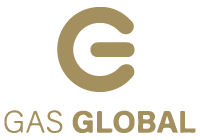How to Increase Your Odds of Finding and Hiring Top Performers
When done right, an interview can lead to the hiring of top candidates, giving your company a significant competitive advantage. A poorly conducted interview can result in the hiring of a poor performer who will be a drain on the company's resources for a long period of time.
If you want to increase your chances of identifying and hiring top talent, here are eight tips to help you develop an interview style.
Identifying the knowledge and abilities needed to complete the task at hand.
You should first determine the specific education, expertise, and experience levels you need in a new hire. Take, as an illustration, the following: Highly developed communication skills and a track record of success managing a field sales team are necessary for this position, as are a bachelor's degree in agronomy and five years of experience in technical sales of crop chemicals.
Interview Preparations
Before interviewees even show up, it's important to do a careful resume check to see how well they seem to meet the job's requirements. Make up some inquiries that will help you learn more about the candidate's qualifications for the job. It's helpful to have similar questions prepared for each candidate so that you can evaluate their answers side-by-side after the interview is over. Inquiries should focus on eliciting responses that reveal how well a candidate meets each of the selection criteria. They need to be free-form so that candidates can fully explain their qualifications.
Making It Through The Interview.
Let's start off by introducing ourselves and anyone else who might be there. Set the stage for the interview by providing some background information about your company, such as its mission, history, size, and future plans (the way we do things around here). Describe the offer in detail, such as upcoming projects and potential promotions, to pique the reader's interest. It's important to come prepared with questions, and to keep in mind that they should all focus on spotting relevant abilities. Take notes on the responses you hear, as they may come in handy later. Be wary of avoidance tactics and follow up appropriately if necessary. Consider the applicant's unique characteristics in light of how they may fit the selection criteria or the company's culture.
The Interviewed Comes to a close.
Inquire as to whether the candidate has any questions concerning the position or the business. This question can help you determine how well the candidate has understood the role and listened during the interview. Applicants should be thanked for their interest and told when they can expect to hear back.
After the Interview.
Once the applicant has left, it is a good idea to quickly summarize your notes. Doing so will help you record your thoughts on their character, competence, and potential at the peak of their impact on you. Later, this data can be used to evaluate the applicant pool as a whole. Notifying unsuccessful candidates in a timely and personable manner is essential for maintaining a positive professional image.
Having more than one interviewer is also a possibility.
Having a panel of interviewees or multiple interviewers can improve confidence in the results. Many businesses today conduct multiple interviews at different times because they find that it yields better results.
Be sure to check the references thoroughly.
Regardless of how qualified a candidate may seem to you at first glance.
Follow the rules set by the law.
Legal protections for people with disabilities in the workplace exist to ensure that all qualified applicants are given a fair chance at a position. Because of this, it is forbidden to ask job applicants about their age, marital status, race, religion, or political affiliation.
If you follow these steps, you'll have a much easier time consistently selecting qualified candidates during the hiring process. Browse through our blogs for more!
